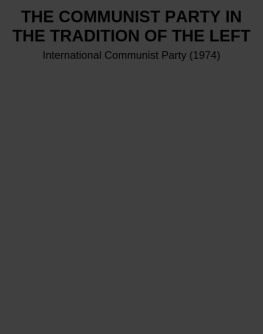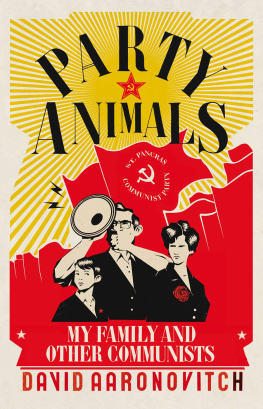Aaronovitch - Party animals: growing up communist
Here you can read online Aaronovitch - Party animals: growing up communist full text of the book (entire story) in english for free. Download pdf and epub, get meaning, cover and reviews about this ebook. City: Great Britain, year: 2016, publisher: Random House UK, genre: Politics. Description of the work, (preface) as well as reviews are available. Best literature library LitArk.com created for fans of good reading and offers a wide selection of genres:
Romance novel
Science fiction
Adventure
Detective
Science
History
Home and family
Prose
Art
Politics
Computer
Non-fiction
Religion
Business
Children
Humor
Choose a favorite category and find really read worthwhile books. Enjoy immersion in the world of imagination, feel the emotions of the characters or learn something new for yourself, make an fascinating discovery.
- Book:Party animals: growing up communist
- Author:
- Publisher:Random House UK
- Genre:
- Year:2016
- City:Great Britain
- Rating:5 / 5
- Favourites:Add to favourites
- Your mark:
- 100
- 1
- 2
- 3
- 4
- 5
Party animals: growing up communist: summary, description and annotation
We offer to read an annotation, description, summary or preface (depends on what the author of the book "Party animals: growing up communist" wrote himself). If you haven't found the necessary information about the book — write in the comments, we will try to find it.
Aaronovitch: author's other books
Who wrote Party animals: growing up communist? Find out the surname, the name of the author of the book and a list of all author's works by series.
Party animals: growing up communist — read online for free the complete book (whole text) full work
Below is the text of the book, divided by pages. System saving the place of the last page read, allows you to conveniently read the book "Party animals: growing up communist" online for free, without having to search again every time where you left off. Put a bookmark, and you can go to the page where you finished reading at any time.
Font size:
Interval:
Bookmark:
David Aaronovitch is an award-winning journalist, who has worked in radio, television and newspapers in the United Kingdom since the early 1980s. He lives in Hampstead, north London, with his wife, three daughters and Kerry Blue the terrier. His first book, Paddling to Jerusalem, won the Madoc prize for travel literature in 2001 and his second, Voodoo Histories, was a Sunday Times top ten bestseller.
In July 1961, just before David Aaronovitchs seventh birthday, Yuri Gagarin came to London. The Russian cosmonaut was everything the Aaronovitch family wished for a popular and handsome embodiment of modern communism.
But who were they, these ever hopeful, defiant and (had they but known it) historically doomed people? Like a non-magical version of the wizards of J. K. Rowlings world, they lived secretly with and parallel to the non-communist majority, sometimes persecuted, sometimes ignored, but carrying on their own ways and traditions. Where others went to church they went to Socialist Sunday School, societys up was their down and its heroes were their villains. Who wanted American TV when you could have Russian movies?
A memoir of early life among communists, Party Animals first took David Aaronovitch back through his own memories of belief and action. But there was much more to it. He found himself studying the old secret service files, uncovering the unspoken shame and fears that provided the unconscious background to his own existence as a party animal.
Only then did he begin to understand what had come before both the obstinate heroism and the monstrous cowardice. And the elements that shape our fondest beliefs.
This book has consumed half a decade and the patience of almost everyone who knows me. I thank them for never grabbing me by the collar while shouting, Not another word about the bloody Communist Party!
Clearly I owe my greatest debt to my birth family, Sabrina, Owen, Ben and Frances. This is a version of their stories too, but they would almost certainly have told it differently. They have been extraordinarily tolerant. I am grateful too to my aunt Gillian Aarons who gave up the best part of a West Country summers day to help me when her judgement probably was that she shouldnt.
Dan Franklin at Cape and my agent Georgia Garrett have helped me through this with exemplary possibly absurd patience. My friend John Lahr offered hours and hours of advice all taken amounting to the proposition that the more I didnt want to write about something, the more I should. So I did. So its his fault. Without knowing Stephen Grosz I would never have had sufficient insight into my own biases and proclivities to write this book. Jennifer Stahl, from far away, somehow performed the trick of making my words sing. The late Kim James gave me a hilarious and unrepentant afternoon near Northampton and Arnold Wesker a fascinating, literary one near Hay one spring. Two comrades from Sam and Lavenders branch the late Pete Richards and his wife Elvira told me things in their flat in the block where theyd lived for forty years, with its view over the railway. That great East-Ender Bernard Kops allowed me to quote from his wonderful poem. My thanks too to the staff at the wonderful Peoples Museum in Manchester for the assistance with riffling through their archives.
An unlikely source of encouragement (unless you know him) was my colleague at The Times, and Conservative peer, Daniel Finkelstein. When is the book coming out? he would ask me regularly for at least the first three years. I want to understand why they did it! Hopefully, Danny, now you do.
Extract taken from The Waste Land taken from The Waste Land and other poems Estate of T. S. Eliot and reprinted by permission of Faber and Faber Ltd. Lines from from The Party, first performed 1973, first published by Faber & Faber in 1974. Trevor Griffiths 1973. Used by permission of United Agents LLP on behalf of Trevor Griffiths. Lines from Whitechapel Library, Aldgate East Bernard Kops, used by kind permission of Bernard Kops. Hey Ho! Cooke and Rowe written by Peggy Seeger, published by Stormking Music Inc., administered by Harmony Music Limited, used with permission. Which Side Are You On written by Forence Reece, published by Stormking Music Inc., administered by Harmony Music Limited, used with permission. Alabama 58 written by Ewan MacColl and Peggy Seeger, published by Stormking Music Inc., administered by Harmony Music Limited, used with permission. The Banks of Marble written by Les Rice, published by Stormking Music Inc., administered by Harmony Music Limited, used with permission. If You Miss Me At the Back of the Bus written by Carver Neblett, published by Sanga Music Inc., administered by Harmony Music Limited, used with permission. Something in the Air by John Keen 1969 FABULOUS MUSIC LTD. Lines from The Delicate Dictator translated by Robert Bly. Translation Copyright 1971, 1993 by Robert Bly. Reprinted by permission of Georges Borchardt, Inc., for Robert Bly. Im Gonna Be An Engineer written by Peggy Seeger, published by Stormking Music Inc., administered by Harmony Music Limited, used with permission. Lines from To the Unborn translated by Scott Horton Scott Horton. The Ballad of Stalin written by Ewan MacColl, published by Harmony Music Limited, used with permission. Lines from Chicken Soup with Barley Arnold Wesker, used by kind permission of Arnold Wesker. Every effort has been made to trace copyright holders and to obtain their permission for the use of copyright material. The publisher apologizes for any errors or omissions in the above list and would be grateful if notified of any corrections that should be incorporated in future reprints or editions of this book.
Paddling to Jerusalem: An Aquatic Tour of Our Small Country
Voodoo Histories: The Role of the Conspiracy Theory in Shaping Modern History
Five for the years of the five-year plan
And four for the four years taken!
Red Fly the Banners O!
In the summer of 1961 the Communists of Parliament Hill Fields celebrated. Nellie Rathbone sang to herself as she picked up the milk and the Daily Worker from her doorstep in Makepeace Avenue. Old Andrew Rothsteins lips lifted the white moustache below his black homburg as he walked down Hillway on his way to the Marx Memorial Library. In the dentists surgery in St Albans Road, Rose Uren, the Party orthodontist, gripped the drill a little more lightly and may even have permitted her victims the use of an anaesthetic. Or so I imagine. I was only seven at the time, but my infant sensors could distinguish between primary emotions, and what was going on among the comrades was something close to happiness.
The cause of this good humour was the visit to Britain of the worlds first cosmonaut (which I wrongly took to be a word created by amalgamating communist and astronaut). Handsome, wholesome Yuri Gagarin was everything a British Communist wanted a Russian to be: the son of a peasant family, a proletarian apprentice in a foundry, then an officer in the Red Air Force. On 12 April 1961, Gagarin had become the first man in space. Bunched up in a tiny capsule called Vostok 1, screwed on to the end of a huge rocket, he had been blasted into the stratosphere where his smile had been picked up on grainy film and then he had been almost magically wafted to earth somewhere in the vastness of Soviet Central Asia. It was a triumph for socialism.
Three months later, on a wet and rather cold British summers day, Yuri Gagarin arrived in Manchester. It is said that small children wearing home-made cosmonaut outfits lined the terraced streets to wave to him. He appeared before crowds in Trafford Park and was noisily feted by teenage girls who weeks earlier might have been screaming for a coiffed idol with a guitar. Gagarin was sexy an attribute not often associated with Russia, with its women shot-putters and fleshy General Secretaries. In the
Font size:
Interval:
Bookmark:
Similar books «Party animals: growing up communist»
Look at similar books to Party animals: growing up communist. We have selected literature similar in name and meaning in the hope of providing readers with more options to find new, interesting, not yet read works.
Discussion, reviews of the book Party animals: growing up communist and just readers' own opinions. Leave your comments, write what you think about the work, its meaning or the main characters. Specify what exactly you liked and what you didn't like, and why you think so.

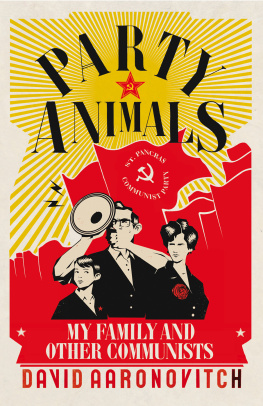
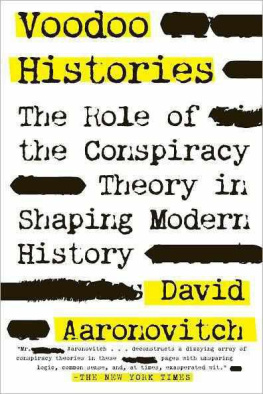
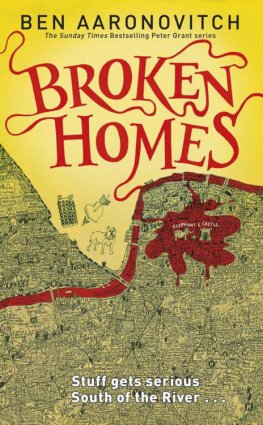

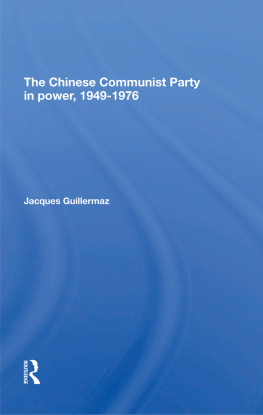
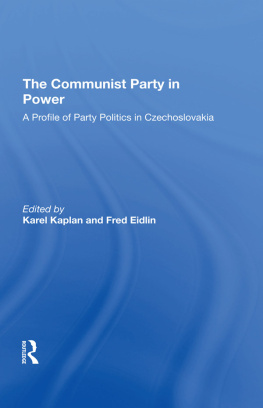
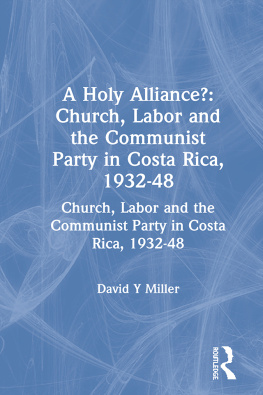
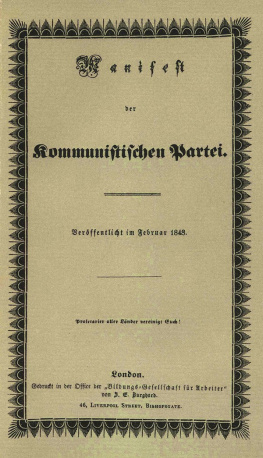
![Communist Party of PeruCommunist Party of Peru - Shining - The Collected Works of the Communist Party of Peru. 1968-1999 [Warning: Hate Speech and Negationism]](/uploads/posts/book/267146/thumbs/communist-party-of-perucommunist-party-of-peru.jpg)
